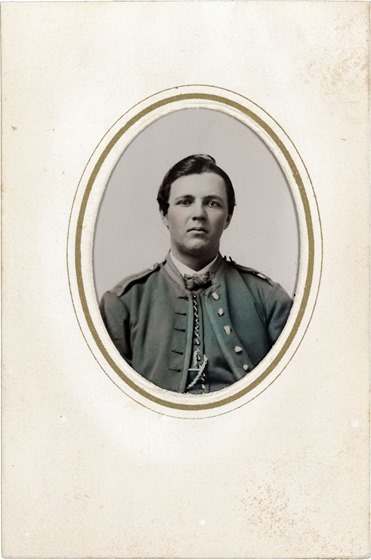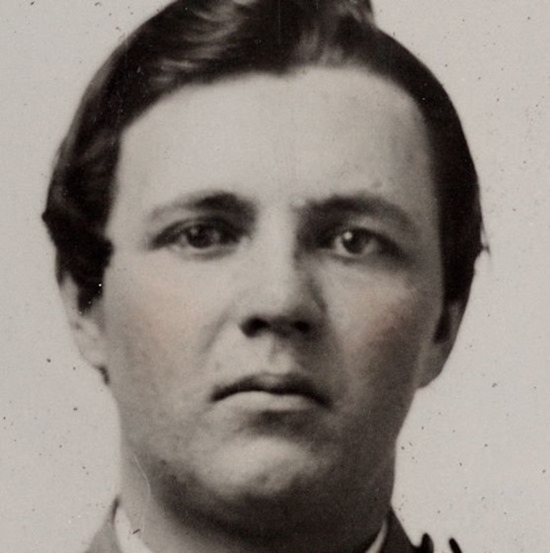Mission Ridge, Wednesday, Nov. 25. Called up before three in the morning to feed. Suffered very much from cold during the night. The blankets stiff with frost over us. Witnessed an almost total eclipse of the moon and again lay down, but no sleep.
6 A. M. McCook’s Brigade of Davis’s Division formed in line of battle facing to the left and supporting our artillery, should it be necessary. 1st Section (rifles) reported to be well fortified on the ridge.
9 A. M. Not much fighting as yet, the pickets advancing and skirmishing. A reb battery shells directly over and in rear. One shell twelve-pounder time-fuse dropped ahead of our team and was dug up by the boys. A mule team came up and issued one day’s rations of hard-tack.
11 A. M. The 2nd and 3rd Brigades went in on double quick followed by the 11th Corps with crescents flying, a fine looking body of men, but are looked on rather suspiciously by our sturdy veterans. They went in and advanced towards the rebels’ works on Tunnel Hill, and musketry rattled very severe.
From that time [till] late in the evening a terrible struggle followed, wounded men coming back thick and fast. Our position was such that we could not witness the field and we were not permitted to leave the teams an instant. Our loss is very heavy especially in officers. The struggle on our side was for the occupation of Tunnel Hill and our line advanced up the steep side of the bluff time after time, but were obliged to fall back, the rebels being reinforced all the time, and could pick them off with ease, the lay of the land being such that they succeeded in flanking the 11th Corps, and they fell back in disorder. But they were received by the 2nd and 3rd Brigade of our Division, and soon compelled to retire.
More desperate fighting, it is said by those who witnessed, they had never seen. Our line being for hours under the enemy they rolled stones upon us, wounding many. Three companies of the 5th Iowa, were taken prisoners, having used up all their ammunition and would not run. Artillery could not be brought to much use, and my feelings as I staid under that hill, listening to the noise and rattle of the fight, mingled with suppressed cheers of charging parties, and the groans of the wounded as they passed in the long trains of ambulances, or the lighter wounded hobbling back a-foot with bleeding and mangled limbs, I cannot describe in words. General Matthies was wounded in the head while leading his Brigade on to the charge. I saw him ride to the rear covered with blood. Colonel Putnam of the 93rd Illinois was killed instantly while waving the colors in front of his men, a noble and much loved officer. The 90th Illinois and 73rd Pennsylvania were, literally cut to pieces, and their officers all killed or wounded.
The day closed, and the dark mantle of night was spread over the gory fields. We have gained nothing in the shape of ground all day, but their slaughter must be terrible. Thomas and Hooker were at them all day and it is reported gained great advantage. We had to fight the main body of the army. Lookout was taken yesterday, 2500 prisoners and three pieces of artillery. To-morrow if they stand, will be a final and awful test of strength. Sherman, cool and deliberate, is ready for them. Got corn to feed on the battle-field.













